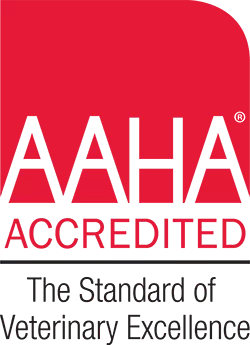How to Manage Your Pet's Weight for a Longer, Healthier Life
Talking about weight can be an uncomfortable situation for many of us, even concerning ourselves, our doctors, and our family members. When it relates to our pets, it’s not always a comfortable discussion, but we feel it’s an important one to have.
The Importance of Food Moderation for Pets
Most of our pets, just like we do, love eating. Food is a way to unlock our soul, our happiness, and connect, and we do so with food in our relationships with our pets. However, moderation is important because we want your pets to live longer, be happier, and feel more comfortable during their time with you.
Starting Weight Management Early
Weight management starts at a young age, and it’s important to have portion control, including with treats, and regular exercise. These are the big things. Having a dog and giving your dog exercise is not only good for them, it’s good for you. It’s enriching. Most dogs love to go for walks, be out, and see other people and pets. It’s great for all of us to keep us healthy, burn calories, move our joints, and exercise. It also helps with leash training; these are all good things.
Portion Control Matters for Your Pet
Portion control is always important. We never recommend just filling the bowl, especially for cats, as it’s common to fill and put up free-choice dry food, which is the number one reason we see cats become overweight.
I think we, as veterinarians, have put a taboo over the years on canned food. I agree it can have an odd smell, depending on the food, especially canned foods with fish as the protein. You have to deal with the recycling of cans, the mess, and it is a little more expensive, but overall, cats digest canned food much better.
They maintain a lean body weight, especially if fed all canned food and no dry food, as cats are carnivores and do much better with no carbohydrates. Unfortunately, dry food has a lot of carbs, which you want to avoid, whereas canned foods have no carbohydrates. Cats do great on canned food diets, so don’t shy away from canned food. Dry food isn’t evil; it’s just problematic if fed too much.
Talk to Your Veterinarian About Your Pet's Weight
Please, if you have any questions, talk to your veterinarian about portion control with your cats and dogs at an early age, or at any age, especially if there’s a problem. Weight is much easier to put on than to take off. Most diets don’t work, but we do have some hints and tricks to help your pet lose weight if needed.
Why Weight Control Matters for Your Pet
Weight control is important not only for comfort as we age and our joints, but also because extra weight hastens arthritis and arthritic pain. It can also increase the risk of orthopedic injuries like ACL tears in dogs and back issues, especially in breeds like dachshunds or French bulldogs, which are prone to disc problems. Maintaining a lean, healthy body weight is very important for our pets.
The Research on Longevity for Your Pet and Their Weight
A study by Pina a few years ago compared overweight dogs, not even obese, to healthy-weight dogs. It was a lifetime study with hundreds of dogs, and the results showed that healthy-weight dogs live an average of two and a half years longer than overweight dogs. You can imagine how much more they would live than obese dogs. Two and a half years, especially in breeds that only live seven to nine years, or even those that live 14 to 15 years, is a long time.
Talk With Your Veterinarian at Hampton Veterinary Hospital
We want your pets to live with you, be happy with you, and spend their lives with you as long as possible—in the most comfortable and healthiest way possible.
If your veterinarian discusses weight loss with you regarding your pet, please try not to take it personally. Realize we’re only doing this to help your pet and you. If you have any questions about weight control or preventing your pet from becoming overweight, please feel free at any point in time to reach out to your veterinarian here at Hampton Veterinary Hospital. We’re more than happy to help.
If you’re searching for veterinary care you can rely on, we’re here to help. Call (603) 926-7978 or email [email protected] to schedule your pet’s appointment. Our team is committed to keeping your pet happy and healthy.

